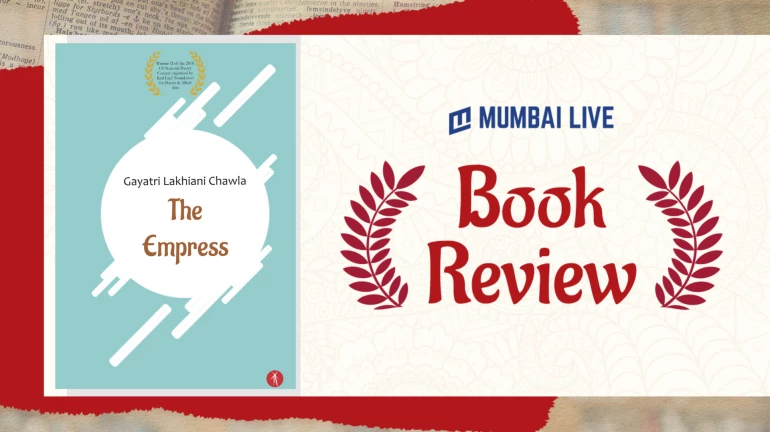
Poetry is like a dew: a 'product' of sparkle after a long night of mediation. Like dew, it is condensed, and capable of reflecting the world in a very small space.
In this age of social media, when we immediately react to everything thrown at us, poetry insists on the response after consideration. As a form, it resists manipulation so one hopes a finer degree of truth is sieved by it. When we are surrounded by fake news, fabrication, etc. reading poetry can be like breaking of dawn.
Also Read: A Book For The Writer, Of The Writer, By The Writer- How To Get Published In India By Meghna Pant
One of such reads is Gayatri Chawla's 'The Empress' which is a collection of 40 poetries. A poet, translator and French teacher from Mumbai, Gayatri has her poems published in international anthologies and periodicals like The American Poetry Anthology, The Indian P.E.N., Setu, Pea River Journal, The Hans India, The Bombay Review, Narrow Road, Open Road Review, among other places. Her first book the 'Invisible Eye' is also a collection of poems.
The biggest takeaways from the book is how it explores themes like identity crisis for a Sindhi person longing for a home that does not exist anymore and makes us ponder of how its the reality for many people from Sindh. No matter how many forms it has been depicted, whether its theatre, movies, documentaries, fine arts one just cannot have enough of literature based on the biggest migration known to mankind. The poetry rooted in Mumbai finds its traces in her maternal grandmother's house which they had to leave behind in Lahore during the partition on 1947.
It was fascinating to read about Colombian Nobel Prize winner Gabriel García Márquez's 'Love in the time of cholera' being converted into a poem in Gayatri's 'Clamour'. However, there have been many references of Sindhi folklore with subtle contexts. One who is clueless about the Sindhi culture will have to rely on Google. This book is a perfect companion for quick read, especially during traveling.
Bits Of Brilliance From The Book:
∼Describing her childhood- we walked away before we knew it.
∼Talking about an unhappy marriage- poetry ebbs like an avalanche, ruin is a gift.
The book perfectly redefines how poetry doesn't provide answers but provokes questing.
Book Details- Publisher- Hawakal Publication • Genre- Poetry • Date of Release- May 2019 • Paperback- 82 pages
Also Read: Zoya Akhtar Unveils The Cover Of Amish's Upcoming Blockbuster – Raavan-Enemy Of Aryavarta





